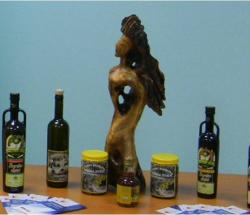| Brief description |
Creating a cross-border olive tourism offer based on authentic olive oil production, tradition and culture.
|
|---|---|
| Region | Intra Western Balkan borders |
| Countries | Croatia (HR) – Montenegro (MNE) |
| Location | MNE: The municipalities of Bar, Tivat, Kotor and Herceg Novi HR: Dubrovnik-Neretva County |
| Type of project partners | Non-governmental organisations (international/national NGOs) Public bodies/institutions Chambers, business associations |
| Size (total budget including EU grants) | € 200,000 to € 500,000 |
| Main themes | Tourism and cultural heritage Agriculture and rural development |
| Keywords (Types of Activities) | Education and training Marketing, promotional activities, awareness campaigns Construction, repairs, cleaning up |
| Keywords (Aspects of Good Practice) | Genuine cross-border dimension Genuine cross-border impact Innovative Efficient Good dissemination Good sustainability |




